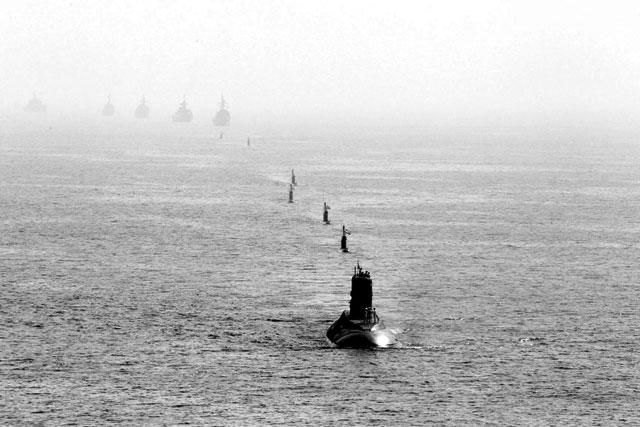You are here
Representatives of Arab Gulf states, Iran exchange accusations
By Rana Husseini - Nov 08,2018 - Last updated at Nov 08,2018
AMMAN — Gulf and Iranian experts on nuclear security on Wednesday exchanged accusations regarding their roles in the region at an international conference held in Amman.
“Iran has clear future plans of controlling the entire Gulf and Middle Eastern countries and it started with Syria, Iraq, Yemen and Lebanon,” said Ret. Maj. Gen. Ali Ruwaili.
Ruwaili, who is the director of special training programmes at Prince Nayef Arab University for Security Science in Saudi Arabia, added: “Our problem with Iran is its leadership that is trying to control and occupy us in this region, and not its people who want to live in peace. The future does not look good.”
The Saudi expert said that Tehran has used tactical methods to engage the region's people in infighting, adding that "other countries such as Turkey and Israel are also trying to interfere in our countries".
“It is very clear that these three countries are supporting the militias in Syria, Iraq and Yemen, to weaken the rulers there and take over these countries, but Iran has the strongest influence and the weapons it is building are to attack us Arabs, not Israel or the United States,” Ruwaili told the gathering of representatives from 39 countries attending the opening session of the 12th Amman Security Colloquium.
Riad Kahwaji from INEGMA Company in the United Arab Emirates echoed Ruwaili’s concerns, stating that “Iran is actually in a state of war but without engaging directly in it”.
“Iran has manufactured long-range missiles that could reach the heart of Europe and no one is telling them anything. These missiles could easily be in the hands of Daesh and other terrorist organisations soon,” Kahwaji warned.
Ali Soltanieh, who was Iran's ambassador to the International Atomic Energy Agency in Vienna, stressed that “Iran does not cause any threats to its neighbours.”
Soltanieh said that Tehran has sought to meet with leaders of the Gulf countries to discuss the security and economy of the region, adding, "But we never received any responses from them." He also reiterated Iran’s "full" support to the Palestinian cause.
“Our hearts are with the Palestinian people and we are ready to support any country or groups that would fight Israel but we will never attack Israel. In fact, we are attacking the mentality of Zionism,” he added.
Professor Foad Izadi, from the faculty of World Studies at the University of Tehran pointed out that the “US administration has been pressing Iran for over 40 years to leave the Palestinian cause alone, because they said they will fix everything”.
“Iran’s policy and ideology is to support anyone who fights Israel,” Izadi told the gathering, defending Iran’s missile programme. “Iran has the right to defend itself from any country that could pose a threat”.
The conference aimed to discuss the Arab stance on international issues, and the current stalemate in efforts to remove weapons of mass destruction from the Middle East, according to its organisers.
Held at the University of Jordan, the event was sponsored by the Arab Institute for Security Studies, the Geneva Centre for Security Policy, the government of The Netherlands, Konrad Adenauer Stiftung, the Stanton Foundation and the Nuclear Threat Initiative.
Related Articles
TEHRAN — Iran has targeted extremists in Syria with missiles in retaliation for deadly attacks in Tehran, but the strike was also a message
DUBAI — Iran said on Saturday it had many options to neutralise the reimposition of US sanctions on its oil exports, the semi-official
TEHRAN — Iran's parliament on Sunday approved more than half a billion dollars in funding for the country's missile programme and foreign op














